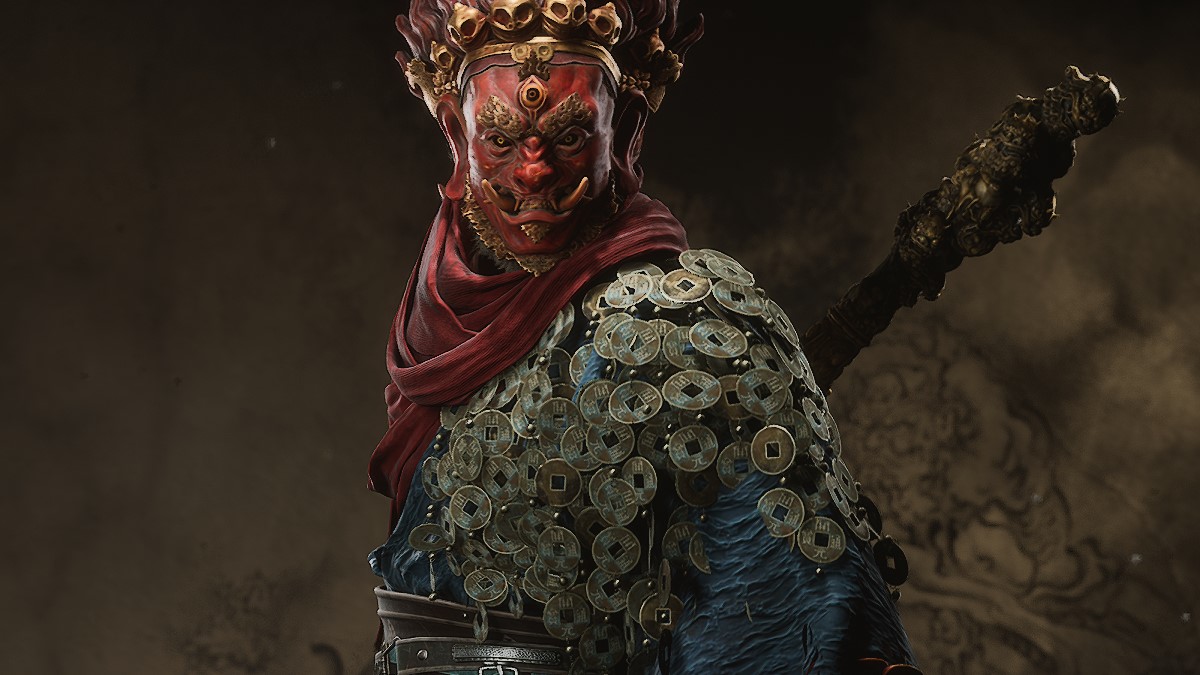Black Myth: Wukong is inspired by Journey to the West, a Ming Dynasty novel featuring the mighty Sun Wukong, and it draws a lot from the story.
Sun Wukong is, without a doubt, one of the most impactful characters in Chinese literature and culture. Outside of being a magical monkey who can do cool things like fly around on a cloud, swing a staff weighing thousands of pounds, and transform himself, one of the reasons for his enduring popularity as a character is that he is a fantastic exploration of duality and contradiction.
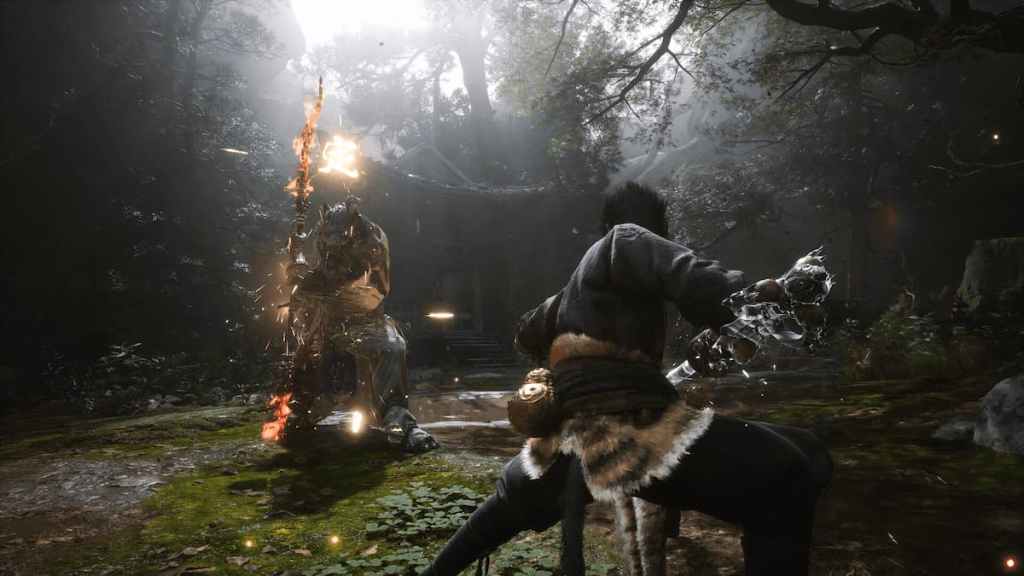
Black Myth: Wukong (PC [reviewed])
Developer: Game Science
Publisher: Game Science
Released: August 20, 2024
MSRP: $59.99
Sun Wukong is both a great strategist and a playful trickster. He has a powerful intellect and is prone to childlike wonder and jokes. He doesn’t want to die, to the point where one of his main goals is to seek immortality, but he is also driven to face dangers that must surely be strong enough to kill him. He seeks enlightenment, yet is burdened by his own anger.
But does it all translate well? Does an obviously strong vision from the devs hold up in the face of the apparent reverence for the source material? Does it all lead to an enjoyable gaming experience?
As the old saying goes, inside you are two wolves. Well, inside Black Myth: Wukong, there are two monkeys, but which one is being fed? The cunning trickster or the grand visionary?
What’s in a game?
It feels pertinent to first address what Black Myth: Wukong is not, rather than what it is. This is absolutely not a Soulslike game. I’m sure some folks will disagree with me, and that’s fine. It definitely is a third-person action game, but it purposely avoids many of the design choices that we have all grown to associate with FromSoftware’s work and the Soulslike genre at large. This is a more linear experience, focused on shuttling you from moment to moment rather than offering freedom to discover. While there are some secrets, they are reasonably few compared to the intricate folding of game space that a FromSoft title can produce.
For a difficult game, it is also surprisingly relaxed in certain areas. As you fight through Wukong‘s journey, you earn experience; that experience earns you skill points called Sparks, and those Sparks are used to awaken long-lost abilities or perfect combat techniques, stances, or spells. Should you die, you don’t need to go back and collect your “souls” or anything like that. Black Myth: Wukong is also one of the most encouraging games that I can remember when it comes to build experimentation and expression. You don’t like the type of hero you’ve crafted? Just visit a fast travel shrine and switch all your points around, free and easy.
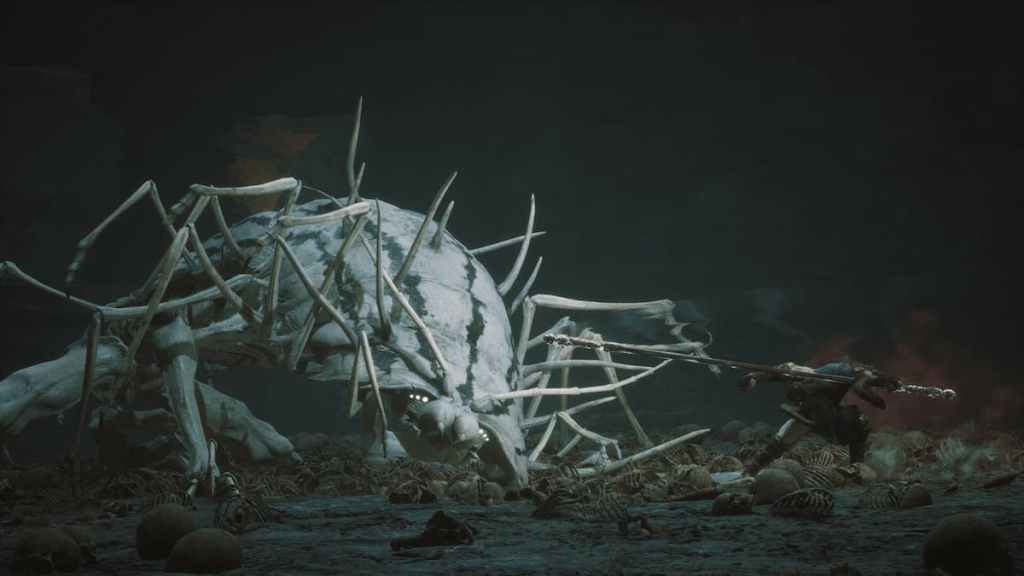
The main focus of Black Myth: Wukong, as far as gameplay goes, is fighting bosses. Big ones, small ones, cunning ones, dumb ones, and everything in between. You are rarely more than a couple of minutes away from encountering something that is going to send you back to a Shrine the hard way. In my time with the game so far, I have never been far from my next boss fight, and upon occasion have found myself with a couple of directions I could go, each one stonewalling me with a boss who was giving me fits with magic, hammering clubs, or slicing claws.
And this leads us to our greatest departure from Soulslike: the safety of the grind. Those who are willing to put in the time can always farm enemies in Soulslike games, ram their stats through the roof, and then try face-tanking almost any enemy. Not so, for Black Myth: Wukong. What I really enjoyed about the combat and skill system is that much of it is predicated on doing something specific in a fight, rather than just a mindless “do more damage” or “take more damage” stat. Yes, you can improve those base stats a little, but the real improvements come in the form of bonuses based on how you behave in combat.
For example, you can invest in improved damage reduction after a heavy attack. This is great, because performing these can be punishing, especially if you fail to hit. Even when you land it, the swing can leave you open to retaliation. This means you need to learn the best window to land your own heavy attacks, and what kind of damage is worth eating versus avoiding completely. Sometimes you will just need to trade damage for damage. One of my favorite builds involves ramping up my damage after a perfect dodge. As I slide sideways, a simulacra of myself left in my wake, my trusty staff begins to glow, and I know it’s clobberin’ time.
The boss fights in Black Myth Wukong are my preferred type of boss fights because they act as challenging and intricate puzzles. The enemy has a skillset, as do you. The fight becomes about finding the gaps in how they behave, and what they do, and how you wish to counter that. You’ll need to have a plan on how to use those Sparks, what moves or stances you will break out and experiment with, and what spirits and spells you will equip. Pay close attention to patterns and behavior and you will find the route to victory; just try to button bash your way through, and it won’t go well for you.
As you take out enemies, you will get to absorb some of their essences, and can even become them during fights. This gives you a whole new moveset and health bar, and can be a real difference maker if you pick the right form to use against the right boss. However,I think my favorite combat element is Immobilize, a short, sharp spell that can freeze an enemy in place, giving you time to reposition, get off the perfect attack pattern, and deliver crushing damage.
The combat seems frantic and frenetic at first, then each fight settles into a series of trades, offers and rebuttals between belligerent combatants. It all feels, for lack of a better word, genuine.
Visual Splendor
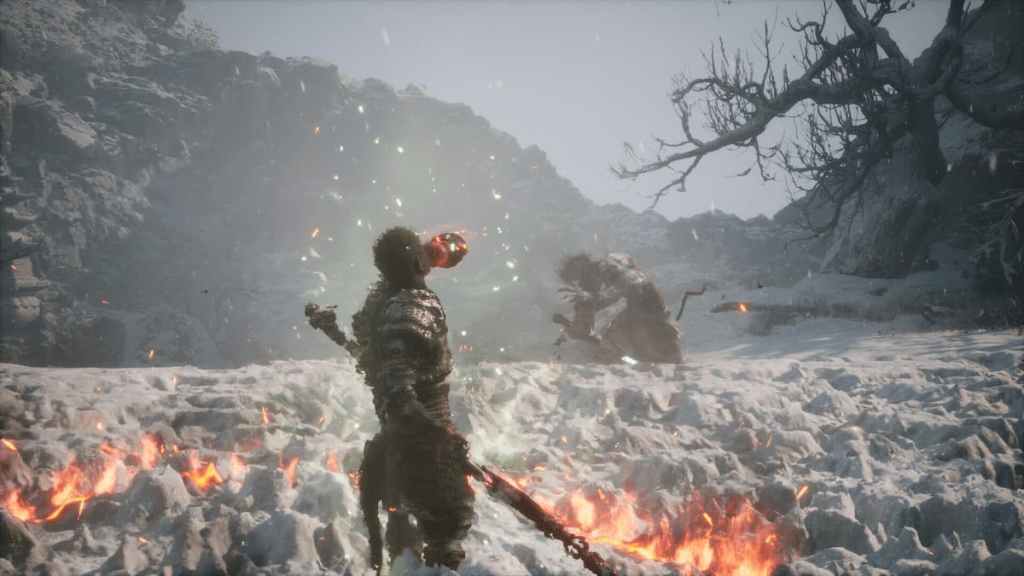
To get it out of the way, the first time I saw gameplay of Black Myth: Wukong, I thought it was good old-fashioned bullshots. Gussied-up footage being run by a supercomputer that would be beyond the reach of the actual release build. Welp, what a fool I have been. This is, without a doubt, one of the most beautiful games I have ever seen. Textures, lighting, environmental design—it all shows the effort that developer Game Science has poured into wringing the best possible results out of Unreal Engine 5. Were I a person of note at Epic Games, I would likely send them a gift basket for what is sure to become the best advertisement they will get for the engine’s visual capabilities at this point in time.
Now, I did have some moments here or there, where I could feel my RTX 4070 Ti start to sweat. There were times where there was a lot happening on screen, both in the environment and with the character models, and normally involved a considerable volume of particle effects, but other than that it was all smooth sailing for me.
There were multiple times while playing where I had to just stop and slowly pan the camera around me, delighting in the way the light played on leaves, sand, or snow. In my early hours, I found myself playing in water, jumping in and out to explore the physics of it all. This game might just have the mossiest-looking moss I have ever seen in my life. It all combines to deliver beautiful and engrossing environments.
The boss design has been magnificent, with everything from lone spearmen to magnificent monsters designed and rendered with care poured into every detail. The armor sets, staff variations, NPCs you meet; it’s all clearly the result of a lot of work and a lot of love. I’m almost certain there will be a lot of little details tucked away in much of the design work that people who are more familiar with the various iterations of Sun Wukong and Journey to the West will delight over.
A very pleasant surprise was the high quality of much of the voice acting. With a couple of exceptions, being trash talked by the bosses was immensely fun, and the friendly NPCs I met all have great quality voicework that really helped to bring them to life. Both sound design and soundtrack also shine, offering everything you would hope to back up the visuals. Combat sounds are thick and crunchy, and the soundtrack veers from wistful and explorative to heart-pounding and exciting, as needed.
The downsides
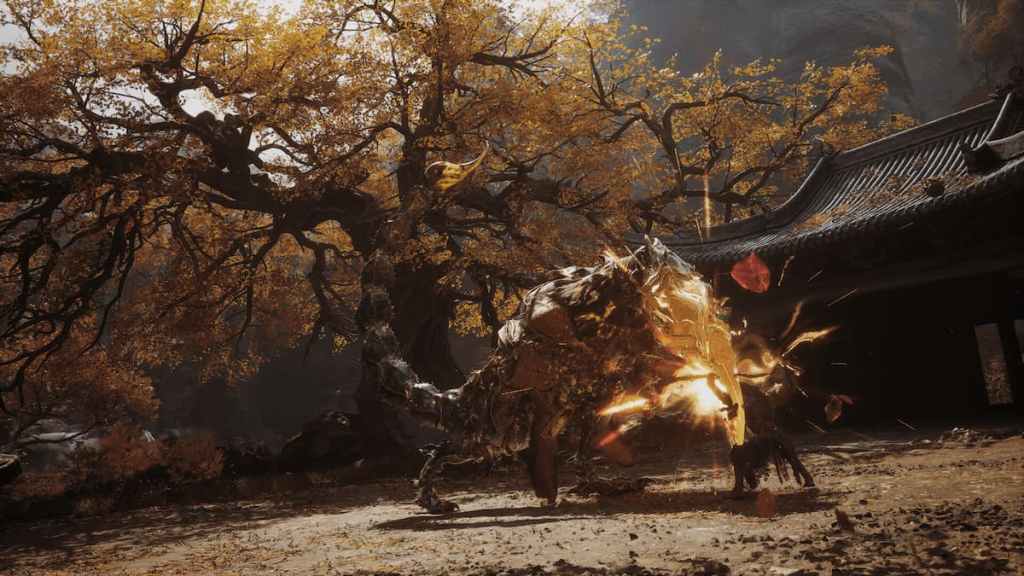
So, with a great combat system, fun boss fights, solid voice work, and glorious visuals, what is the downside? For me, it’s the fact that the world just feels somewhat empty. Everything looks so beautiful and inviting, and you want to explore just a little, but there usually isn’t much to find. There might be an interesting looking building just below you, but an invisible barrier is there to keep you at bay. I think every item and armor piece I have found so far has been as a result of killing something, instead of exploration and curiosity.
While things did open up a bit later in the game, the experience really is very linear, very much focusing on the idea of getting you to the next boss fight. I really noticed it on bosses that I got hung up on for a little bit, as there was no respite. I would put in the work, down some damnable demon, and then was straight into the next fight. It’s a punishing pace at times, and something to keep in mind when deciding if Black Myth: Wukong is for you.
One thing that I found interesting is how ungraceful our protagonist can feel outside of combat. There are odd places that you just cannot move, including things that look like you should easily be able to walk on them, but trying to just leads to an invisible wall. There is no mantle option, so you can jump in vain at a platform just ahead with an enemy on it, but you can’t just grab the ledge and get up there. But, it’s really not much of a downside in the face of all the positives.
For me, I can offer the game two big compliments after roughly 24 hours spent playing through the campaign. First, it’s been a blast and I shall eagerly finish the game, then roll back to this review in progress and offer a score. Sadly, I just didn’t get the key early enough to finish it prior to embargo. Secondly, it has certainly inspired me to learn more about Journey to the West and further explore an area of literature I have yet to really dip my toes into, which I suspect is exactly the kind of impact that would make the developers happy, as more people learn about the source of their inspirations.
As for you, dear reader, if you like punishing boss fights that demand skill and attention, and don’t mind playing through a reasonably vacant world to experience them, then this is for you. For everyone else, there is no easy mode in the options, and nothing in the way of summons or other such mechanics. It’s just you against the boss, which is likely to keep some folks on the sidelines, and that is a shame.
